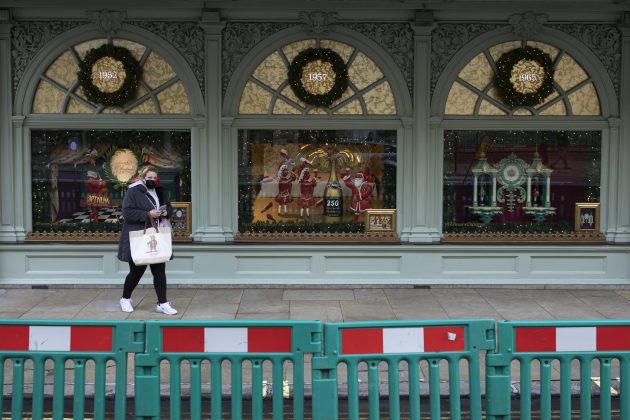Reed chair’s fear of ‘tsunami of job losses’ turns to a bullish call rejecting a UK double-dip recession

The chief executive and chairman of recruitment company and jobs giant Reed, James Reed, has changed his tune on his outlook for the UK economy and jobs market.
In May Reed said the end of furlough would lead to a “tsunami of job losses” as employers faced a stark reality when government support dried up. That didn’t happen, thanks to an extension.
But now, Reed predicts – if new job postings are anything to go by – the UK recession will avoid a double-dip recession and GDP will power ahead in 2021.
He spoke to City A.M. to explain his change of heart.
Why are you so bullish on the UK economy and jobs market?
Our data, over 20-odd years, is a leading indicator of whether the UK jobs market is going to get better or worse. We saw the pick-up coming out of the Global Financial Crisis before other people, because we saw more jobs being advertised on the site. Obviously that’s one of the first things an employer does [post a listing] before the offer and hire. So we saw it last time and then this time too. We saw the jobs market go off last summer, in June last year. So we called the recession in June 2019 and now we’re saying it’s ending. The thing that clinched it for me was that the job market continued to grow in November, in the face of the lockdown – I wasn’t expecting that. The number of jobs advertised actually went up four per cent on October. Two thirds of the sectors we cover had their number of job postings grow.

The latest job posting stats from Reed also note that the second lockdown was not nearly as painful for businesses as the first, what do you mean by that?
When the first lockdown happened, the scale and the shock of it was unprecendented. There was a real drawing up of the bridges, you know? The second lockdown was different: The schools stayed open so some workers did not have to focus so much on childcare. The other was that certain sectors like manufacturing and construction could largely continue undisturbed – that made a material difference in levels of activity going on. As well as that, the levels of entrepreneurialship – things like restaurant deliveries, new businesses even – that took hold beginning in the first lockdown really began to shine through in the second one.
Back in May, you were quoted as saying the end of furlough would lead to “a day of reckoning” and lead to a “job loss tsunami” . Do you no longer think that’s headed our way?
Several things have happened since May that mitigated that, most importantly the fact that the furlough was extended by the Government.
So is the tsunami still coming when the furlough eventually ends in March?
The extension of furlough has helped reduce its scale: It’s given businesses the opportunity to revive their businesses and it’s given workers new opportunities to find new jobs. But I think there will still be a steady rise in unemployment next year and it will get to levels we haven’t seen in some time, but not as bad as I had first thought in May.

The OBR forecast predicts unemployement will peak at 7.5 per cent next year, that about 2.5million people out of work. Do you think now that is too negative a forecast compared to what youre seeing?
If what we’re seeing in terms of new jobs coming online is played out, as I hope it will be, then I think we can do better than that. And we wouldn’t necessarily need to have that high level of unemployment. The important thing is to move people into new jobs quickly. Obviously the news about the vaccine is huge, that immediately gives businesses more confidence about hiring and opening up again. However, the government has also taken quite a lot of action getting people back into work, whether it’s the kickstart scheme or the restart scheme.
The Reed job postings data was positive for the UK overall, but for London, the rise was only two per cent, what’s that down to?
Yes, London has been hardest hit. The working-from-home rule has greatly reduced commuter numbers into the City, that of course had a knock-on effect for all the businesses that rely on them. But London will revive and it’ll come back strongly in fact because, although there are lots of advantages to working from home, there are also many from working in a dynamic office environment as well. The lights will come back on again. It’s a fantastic global business centre and it will continue to be.
But before there was the effects of Covid-19, there was the effects of Brexit. Now that the Withdrawal Period is ending, how will this new era impact on hiring in 2021?
It will create scarcity in the labour market in certain areas that’ll lead to an increase in wages, so that’s a possibility. I’ll be looking at what arrangements are put in place subsequently, because there are areas of persistent skills shortages, whether it’s technology or social care. So will that be addressed? But both issues [Brexit and Covid] can be resolved quite quickly. I’m optimistic for next year and beyond. I think we could be in for quite a nice run of good economic growth.